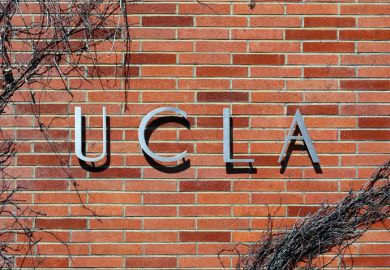The head of the UK’s first privately funded university has reacted to the creation of the second such institution with “great scepticism”, warning that dependence on shareholders could be “even more damaging than dependence on government”.
Terence Kealey, vice-chancellor of the University of Buckingham, a non-profit charitable institution, also gave a “cautious welcome” to the for-profit University of Law.
But he warned that “the American example is a chilling reminder” of how for-profit universities can fail their students.
Buckingham gained its Royal Charter in 1983 and includes Baroness Thatcher among its former chancellors. The University of Law, formerly the College of Law, is expected to be bought by Montagu Private Equity - making it the UK’s first for-profit university.
“I am, of course, in favour of a plurality of providers. Obviously the whole point of Buckingham is to introduce such plurality,” Professor Kealey said.
But, noting the historic pre-eminence of charities rather than for-profit firms among the UK’s private schools, the vice-chancellor added: “I do believe there are reasons why historically it has always been the charitable sector that has dominated in education.”
Professor Kealey argued that there is a “fundamental difference between an institution governed by trustees for the purposes of improving educational excellence and an institution, accountable to shareholders, whose ultimate purpose is the promotion of profit”.
Earlier this year, a major US Senate report on for-profit higher education criticised the industry’s high level of taxpayer funding and low student retention rates.
Professor Kealey said: “We all know that you can’t generate profit in the long term unless you provide a good consumer experience.
“However, in the short term - as the American experience shows - you most certainly can produce very good profits … and ignore or even damage the student-consumer experience.”
Professor Kealey stressed that in his view all British universities are private because they are legally autonomous. He looked forward to more non-state-funded institutions winning university status, notably Regent’s College, which he called a “splendid organisation”.
He added: “In my ideal world, the new providers in higher education would all be charities, although not necessarily funded by the Higher Education Funding Council for England.”
The College of Law had been a charity prior to Montagu’s takeover bid. But a new company limited by share has been created, called The University of Law, which Montagu is expected to buy.
Asked if Buckingham had received similar buyout offers, Professor Kealey said: “Every single one of the major players approached us a few years ago offering an almost identical deal to the one the College of Law accepted… We have resisted all such blandishments.”
And will Buckingham itself always remain a charitable body?
“You can’t predict the future, but the whole culture of the University of Buckingham is independence,” he said. “We would consider dependence on shareholders to be as damaging as - perhaps even more damaging than - dependence on government.”
If Buckingham faced a choice between sale to a for-profit and signing up to Hefce funding and oversight, Professor Kealey said his personal view was that the “instinct of the university would be to sign up to the financial memorandum of Hefce”.
Register to continue
Why register?
- Registration is free and only takes a moment
- Once registered, you can read 3 articles a month
- Sign up for our newsletter
Subscribe
Or subscribe for unlimited access to:
- Unlimited access to news, views, insights & reviews
- Digital editions
- Digital access to THE’s university and college rankings analysis
Already registered or a current subscriber? Login



